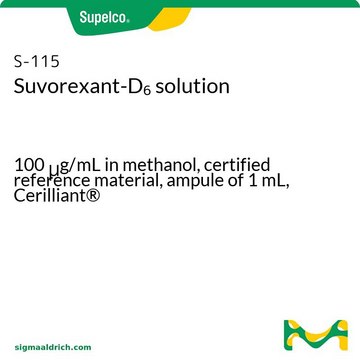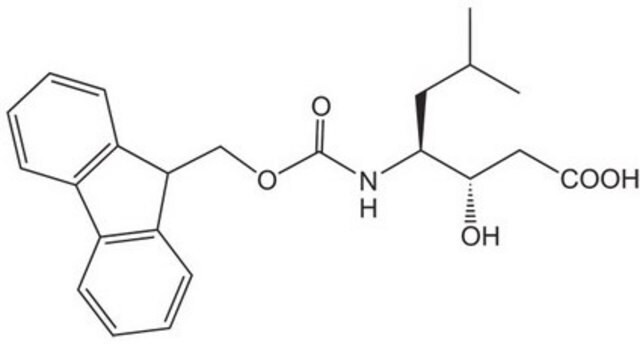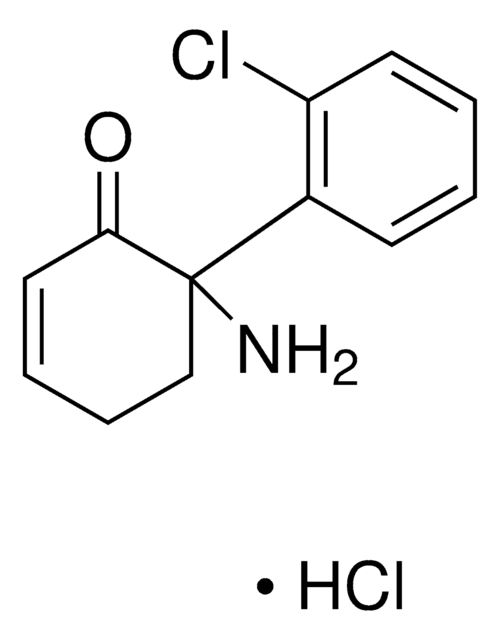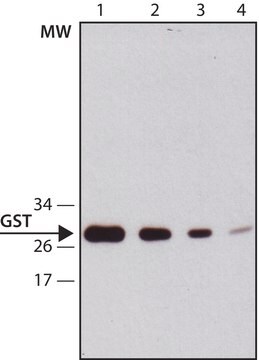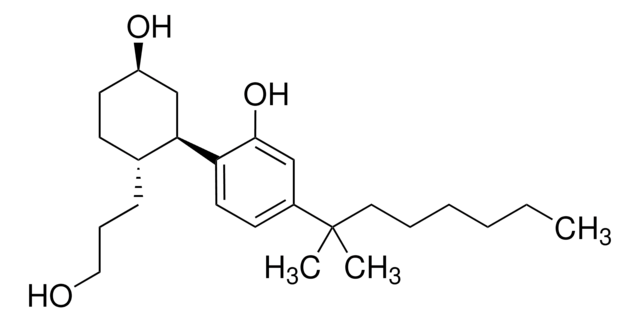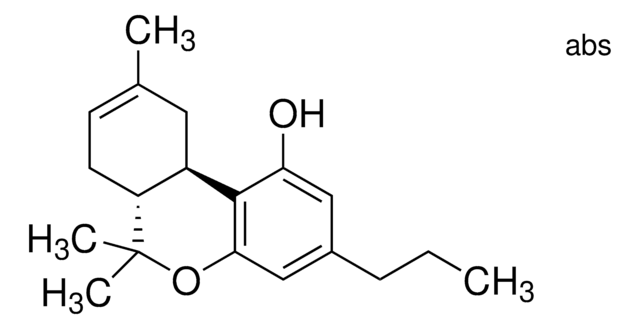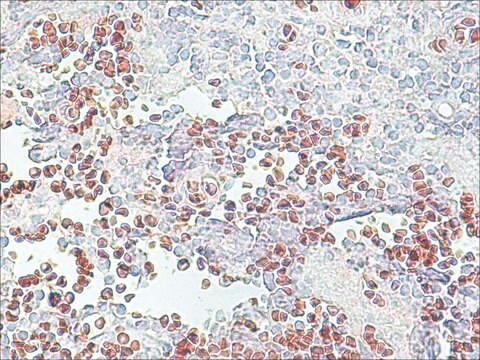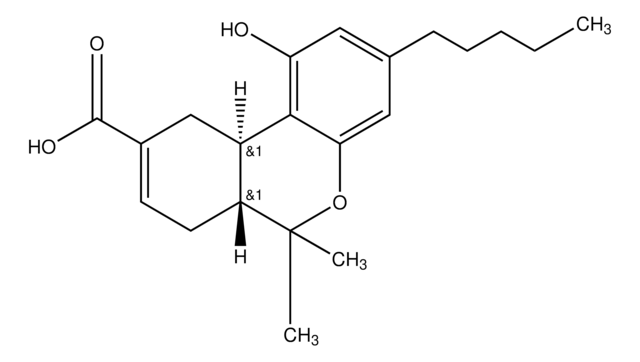H7909
HU-210
solid (air sensitive)
Synonym(s):
(6aR-trans-3-(1, 1-Dimethylheptyl)-6a,7,10,10a-tetrahydro-1-hydroxy-6,6-dimethyl-6H-dibenzo[b,d]pyran-9-methanol
About This Item
Recommended Products
form
solid (air sensitive)
Quality Level
drug control
USDEA Schedule I; stupéfiant (France); regulated under CDSA - not available from Sigma-Aldrich Canada
storage condition
desiccated
solubility
DMSO: soluble
shipped in
wet ice
storage temp.
−20°C
SMILES string
[H][C@@]12CC(CO)=CC[C@@]1([H])C(C)(C)Oc3cc(cc(O)c23)C(C)(C)CCCCCC
InChI
1S/C25H38O3/c1-6-7-8-9-12-24(2,3)18-14-21(27)23-19-13-17(16-26)10-11-20(19)25(4,5)28-22(23)15-18/h10,14-15,19-20,26-27H,6-9,11-13,16H2,1-5H3/t19-,20-/m1/s1
InChI key
SSQJFGMEZBFMNV-WOJBJXKFSA-N
Gene Information
human ... CNR1(1268) , CNR2(1269)
rat ... Cnr1(25248)
Looking for similar products? Visit Product Comparison Guide
Biochem/physiol Actions
Features and Benefits
Storage Class Code
11 - Combustible Solids
WGK
WGK 3
Flash Point(F)
Not applicable
Flash Point(C)
Not applicable
Personal Protective Equipment
Choose from one of the most recent versions:
Certificates of Analysis (COA)
Don't see the Right Version?
If you require a particular version, you can look up a specific certificate by the Lot or Batch number.
Already Own This Product?
Find documentation for the products that you have recently purchased in the Document Library.
Our team of scientists has experience in all areas of research including Life Science, Material Science, Chemical Synthesis, Chromatography, Analytical and many others.
Contact Technical Service
